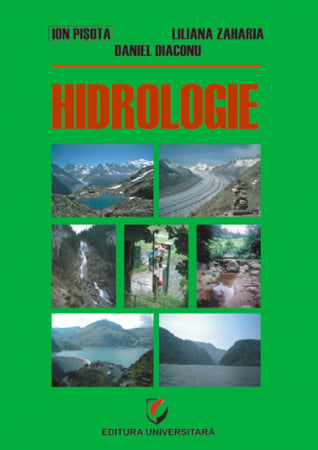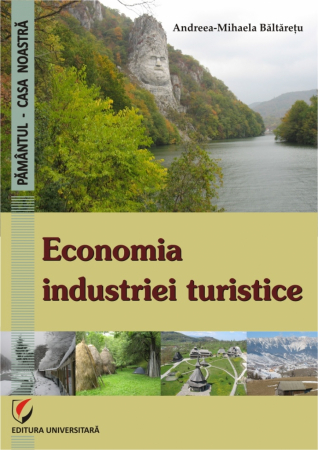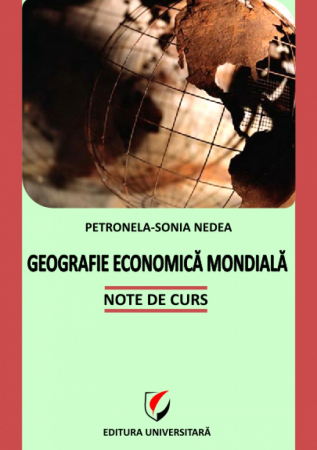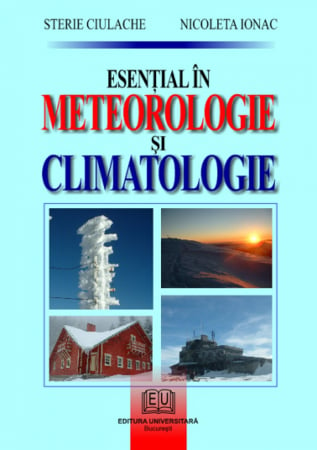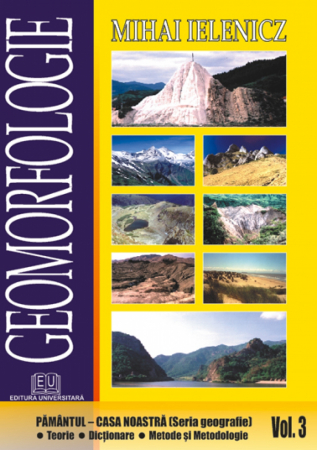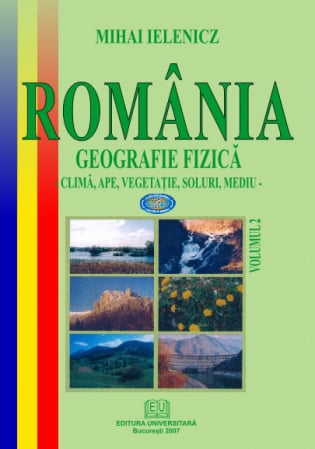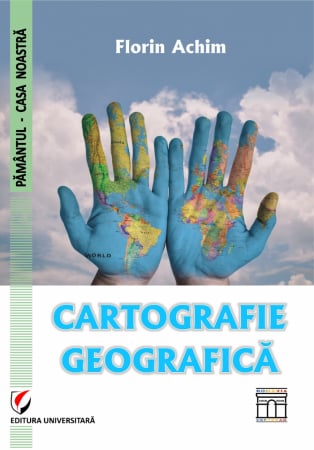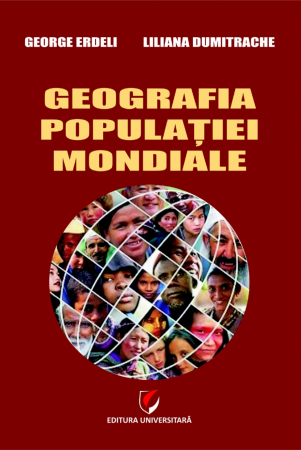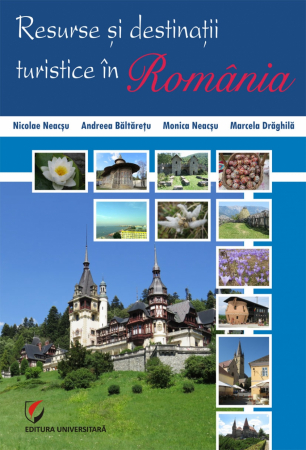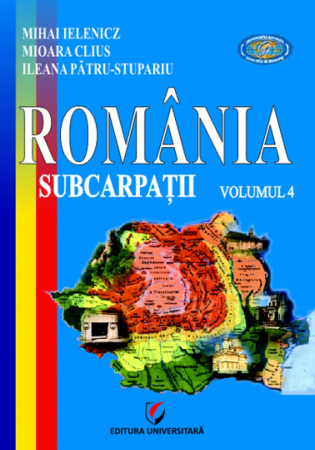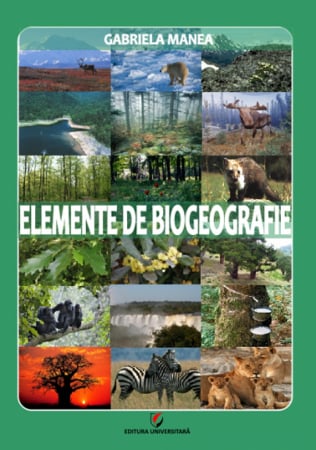ISBN: 978-606-591-234-2
Publisher year: 2011
Edition: I
Pages: 254
Publisher: Editura Universitară
Author: Oana Maria Milea (Rezeanu)
- Description
- Download (1)
- Authors
- Reviews (0)
Study addressed the important topic is the fact that tourism is the content and its role a major component of current civilization, an integral part of economic and social life of a country. Improving the quality of tourism services is a necessary requirement to ensure meeting the needs and expectations of consumers, given that tourism is a necessity bio-psycho-social and spiritual, having a profound effect on improving quality of life, increase vitality and life expectancy.
Tourism is considered "Industry Dreams" provides customers with complex products, characterized by tangible and intangible components, capable of satisfying the most varied and original motivations identified or generated by application developers.
In European politics / world, tourism is regarded as a key component of the third revolution "Well Being Revolution" that can generate real improvement of quality of life.
The role of tourism in national economy is particularly important, the complexity and scope of activities that lead to the development, maintenance and development.
Tourism and exploits highlight the economic riches of nature and environment, or due to history, folklore and civilization, with an important role in human, resulted in some positive effects in terms of tourist on the one hand, and on the other hand the population of tourist destination areas.
Assuming that the tourism industry and travel is a sector with profound implications for economic and social life of society and the quality of tourist consumption is a requirement we have developed the work on "social and economic implications of Romanian tourism service quality".
In the globalized world economy and increased competition in markets, implementing quality management systems has become a prerequisite for the mission, vision and objectives for any organization. These systems provide continuously improved the quality level of activities and especially transparency and internal management processes of the organization to ensure all beneficiaries and customers about the accuracy of costs in the organization, which ultimately is reflected in prices by it.
In this work, we conducted a comprehensive analysis of the Romanian sector of tourism, its dimensions and dynamics, highlighting the importance of quality in tourism and service quality impact on economic and social environment at national and regional levels.
In the context of globalization of the tourism market and a business environment characterized by fierce competition, the market becomes the center of gravity of the client rather than product, companies must change their way of thinking and acting, on the assumption that meet customer requirements is a necessary but not sufficient to achieve market performance. Thus, we considered important to address the quality of tourism services as an expression of efficiency of services in relation to consumer demands, arguing vital role in providing customer satisfaction provider staff and the importance of accurate knowledge of customer expectations and requirements to provide travel services to a higher.
To improve the quality of tourist products, namely services, it is necessary, first, to establish quality requirements of customers, because given the typical customer service is what determines whether they are good or not, and second is important to meet quality standards in services in general and tourism in particular.
Study of economic and social impact of quality of tourism services requires establishing a system of indicators to assess and quantify the phenomena studied. The main indicators analyzed in this thesis are: tourist indicators, indicators of human potential in tourism, tourism demand indicators, the indicators of the relationship request - offer value outcome indicators and indicators of quality of tourism tourist activity.
Romania is an important tourist destination zonal market, promoting, especially, coastal tourism products, spas, cultural programs and monasteries in northern Moldavia and Bucovina. Over time the Romanian tourism offer has not kept pace with the demands of tourism demand and similar tourism products uncompetitive in the international market.
Tourist reception structures and leisure offer is particularly old, tourist services and tourist programs are made as a stereotype, a minimum level of quality and value for money is inconclusive. In relation to general economic developments, and the Romanian tourism in the last three years a steady decline which led to fewer jobs in tourism and travel industry.
To enter the competition need to be modernized international tourism, recovery and development of Romanian tourism and the creation of modern and competitive tourism products foreign tourist market.
The purpose of writing was to present the importance of industry, namely tourism and travel economy and economic development issues facing the Romanian tourism in terms of quality and efficiency in tourism, so that I can propose ways to improve the situation current.
The paper presents theoretical analysis and quality in general and in particular the quality of tourism services, and for this purpose are widely exposed WTO guidelines on standards of quality in tourism, HACCP provisions regarding catering tourism sector and SAFE system involving the following three main areas of food safety circuit:
- Cleaning - to avoid contamination of food;
- Cooking / baking - to kill bacteria or stop their development through fair procedures boiling / baking and keeping food hot;
- Cooling and refrigeration - to stop bacterial growth by rapid cooling and cold storage temperatures appropriate.
As a result, progress in recent years the Romanian economy and accession to the European Union, our country has developed a comprehensive process of harmonization of legislation on several areas including the activity in tourism and the importance of quality of tourism services on economic and social development is one of the main objectives of the thesis.
Tourism has become a very dynamic sector, which must adapt to changes in economic environment and consumer demand behavior changes, structural changes in the economy and employment and, last but not least, to align with European standards.
A first approach is the analysis of tourism activity tourism offer, both nationally and regionally. Types of tourist reception with functions of tourist accommodation in Romania is very different: hotels, motels, inns, hotels youth, hotels, villas, bungalows, tourist chalets, holiday villages, campsites, camp and preschool students, tourist stops, boarding houses, agro-tourism, cottage-type units, accommodation ships.
In terms of tourism demand, it will examine the dynamics of the following indicators:
- The total arrivals;
- The total overnight stays;
- Average length of stay;
- Tourist density.
These indicators will be characterized both in structure and dynamics, as follows: the total country, development regions, the main destinations, by type of accommodation after the origin of tourists.
Concerns permanent analysts to determine as accurately as the real economic benefits of tourism have led to the initiation of the Tourism Satellite Account system. To analyze the economic implications of tourism on the economy will use the paper version of the Tourism Satellite Account WTTC / OE.
Methodological version WTTC / OE uses the System of National Accounts base its analytical framework, but focuses on tourism demand calculated as a percentage of expenditures that make up GDP (personal and business expenses, investment, government spending and balance of goods) can be attributed to tourism and travel.
If social efficiency of tourism, its quantification is more complex than for material goods, as this type of efficiency is seen in the quality of services, assessing consumers, not just good, as a result of a productive activity, but all process of which they themselves are an integral part in a lesser extent or more.
Social impact is manifested by the influence that tourism has on the traditional lifestyle of the inhabitants of an area, the enlargement of their spiritual and professional horizons.
The relationship between efficiency and quality of services it must be mentioned in the context of addressing specific meanings of efficiency in this sector. Because the relationship quality-effective optimization services guarantee ensures carrying out an activity in accordance with consumer demands and market requirements, the key to success for service companies.
After considering the implications of tourism at national level to highlight the relationship of interdependence between the quality of tourism services and economic and social development of a region will present the results of research conducted in Suceava County.
Research aims to provide quality impact assessment of public perception of tourism in the county of Suceava, related to personal and social life as well as environmental and economic conditions of the region.
-
Implicaţiile economice şi sociale ale calităţii serviciilor din turismul românesc
Download

6359.png)
![Economic and social implications of the quality of Romanian tourism [1] Economic and social implications of the quality of Romanian tourism [1]](https://gomagcdn.ro/domains/editurauniversitara.ro/files/product/large/implicaiile-economice-i-sociale-ale-calitii-serviciilor-din-turismul-romnesc-1897-612374.jpg)
